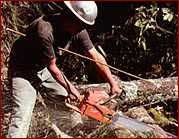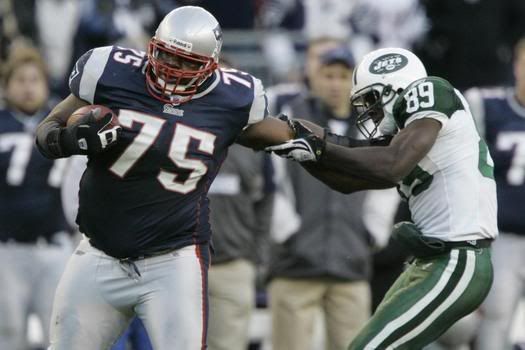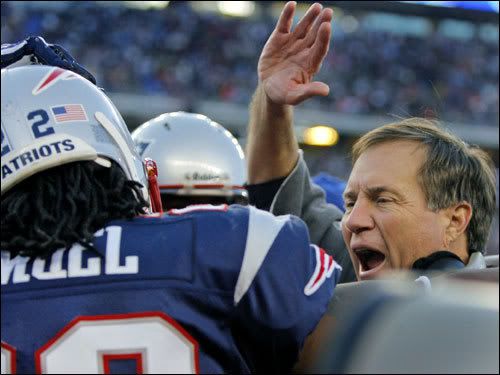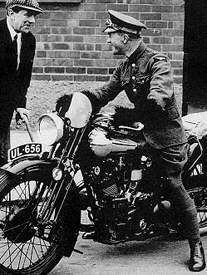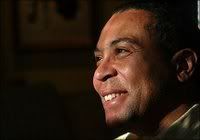cross posted at DailyKosWe’ve been down this road before. That Bush et al have steadfastly refused to learn their history is axiomatic. But I can’t help but wish that someone at PNAC or the American Enterprise Institute or the Federalist Society (ideally several someones at all three) had read T.E. Lawrence before they stooped to whisper in Bush’s ear.
I’ve always known that writing a ‘blog on the “internets” was mainly a labor of self-satisfaction. OK, mental masturbation. But as events spiral to even more insane depths, I just can’t help myself. As long as the President continues in his insane course, I will continue in my inconsequential one.
As I noted in
my review of
Imperial Life in the Emerald City, complete inaccuracy and naivete were the hallmarks of the CPA and all concomitant efforts at ruling the city of Baghdad and the state of Iraq. The nerve center of the disaster has been, from the start, a strange mishmash of the Vice President’s office and the President’s advisory group. I don’t think we’ll ever be permitted to pick apart the strands of influence and come to an accurate understanding of the theory underlying the invasion and occupation. As time goes by, I’m inclined to think that’s because there isn’t one. I begin to believe that this has all been seat-of-the-pants policy making, informed by Bush’s ‘gut,’ his prayers and his political needs.
Everything we’ve done since American boots hit the sand has been wrong-headed. Not militarily—we know no master in the arts of conventional warfare. But sociologically, politically. We seem to have moved on the assumption that hearts and minds were already won. We failed, most spectacularly, to understand just how unique 1776 was, and why simple freedom from tyranny was no guarantee of stability, nor of democracy. We assumed people gravitate first toward the underlying principles of a democratic republic. People gravitate toward stability. Toward safety. Only when they’re confident of that do they move toward ideals.
Vietnam ought to have taught us that. But who cares about history? It’s in the past.
Eleven days after he arrived in Iraq, Bremer issued CPA Order Number 2, which dissolved not just the army, but the air force, the navy, the Ministry of Defense, and the Iraqi Intelligence Service. With the scrawl of his signature, he created legions of new enemies. …
If Bremer had asked the American military for its opinion, he would have heard what Lieutenant General David McKiernan, the first commander of ground forces in Iraq, said the day the order was issued: “There are a large number of Iraqi soldiers now unemployed. That is a huge concern.”
…Bremer eventually announced that army officers who were not senior Baathists would receive monthly stipends. He also unveiled plans for a new army. It would consist initially of forty thousand soldiers, all of them infantrymen. There would be no tanks or artillery, and the army would be limited to guarding Iraq’s borders. Former soldiers were not guaranteed positions. They’d have to go to boot camp.
By then, however, it was too late. In a land of honor and tradition, the viceroy had disrespected the old soldiers. I never ran into Omir again, but months later, I did see another former soldier who had been at the protest.
“What happened to everyone there?” I asked. “Did they join the new army?”
He laughed.
“They’re all insurgents now,” he said. “Bremer lost his chance.”
Imperial Life in the Emerald City pp.76-77
“A land of honor and tradition.” Mesopotamia. Cradle of civilizations. Seedbed of the west. Ignore the quisling press, scribbling about the “front line of the war on terror.” Iraq was not that until Bush birthed it so.
That our errors in Mesopotamia mirror our errors in Vietnam has been very well
documented by others. But I wish that, in our unwillingness to learn from our own history, we at least might have been persuaded to learn from the wars of others.
T.E. Lawrence advised and encouraged (and deceived) the Arab Revolt against the Turks during WWI. In the early stages of the rebellion, as he help Feisal to muster an army, Lawrence realized that there was no way any Arab army could face down the Turks in a conventional sense. In sickbed, trying to recover from boils and fever, the idea of guerrilla war urged its logic on him:
…I began idly to calculate how many square miles: sixty: eighty: one hundred: perhaps one hundred and forty thousand square miles. And how would the Turks defend all that? No doubt by a trench line across the bottom, if we came like an army with banners; but suppose we were (as we might be) an influence, an idea, a thing intangible, invulnerable without front or back, drifting about like a gas? Armies were like plants, immobile, firm-rooted nourished through long stems to the head. We might be a vapour, blowing where we listed. Our kingdoms lay in each man’s mind; and as we wanted nothing material to live on, so we might offer nothing material to the killing. It seemed a regular soldier might be helpless without a target, owning only what he sat on, and subjugating only what, by order, he could poke his rifle at.
Then I figured out how many men they would need to sit on all this ground, to save it from our attack-in-depth, sedition putting up her head in every unoccupied one of those hundred thousand square miles. I knew the Turkish army exactly, and even allowing for their recent extension of faculty by aeroplanes and guns and armoured trains (which made the earth a smaller battlefield) still it seemed they would have need of a fortified post every four square miles, and a post could not be less than twenty men. If so, they would need six hundred thousand men to meet the illwills of all the Arab peoples, combined with the active hostility of a few zealots.
And how many zealots could we have? At present we had nearly fifty thousand: sufficient for the day. …The Turks were stupid; the Germans behind them dogmatical. They would believe that rebellion was absolute like war, and deal with it on the analogy of war. Analogy in human things was fudge, anyhow; and war upon rebellion was messy and slow, like eating soup with a knife.
The Seven Pillars of Wisdom pp. 192-3
These short paragraphs can tell Bush everything he needs to know about what is happening in Iraq right now, and why his "surge" won’t work. The idea is loose in Iraq that the United States must be expelled. It competes with other urges —the sectarian leanings are becoming Syrian, Saudi and Iranian proxies— but Bush has so far failed to be a uniter in that sense. If he succeeds in that, the trickle of US casualties will rise to a torrent. Not enough to match the deaths of Iraqi citizens at our hands, but more than enough to make even Joe Lieberman regret the invasion.
Still, a successful "surge" might yield a tense stability in Baghdad. If it is large enough. If we keep settled neighborhoods settled with a garrison on every corner—like Lawrence’s posts every four square miles.
Keane and Kagan, AEI darlings and the authors of Bush’s escalation policy, have stated that
It is difficult to imagine a responsible plan for getting the violence in and around Baghdad under control that could succeed with fewer than 30,000 combat troops beyond the forces already in Iraq.
Furthermore,
The United States faces a dire situation in Iraq because of a history of half-measures. We have always sent "just enough" force to succeed if everything went according to plan. So far nothing has, and there's no reason to believe that it will. Sound military planning doesn't work this way. The only "surge" option that makes sense is both long and large.
Well, I’m no mathematician, but I know that 21,500 is less than 30,000. But wrapping up the violence is only a part of the problem, and a relatively superficial part at that. The principal flaw in the Bush administration’s method has always been its superficiality. Putting lipstick on a pig, as it were. By its own terms, the escalation is twisted from the root. But even if it was successful in subduing the violence in Baghdad, the larger problem remains: the United States, by itself, is not capable of credibly addressing the deep civic ills of Iraq as Iraq now is.
“Our kingdom lay in each man’s mind,” said Lawrence. He was party to the careful balancing of diverse minds — many of which now make up the tribes and sects vying with each other and with Bush. Through the strength of Fiesal's character and a shared vision of overthrowing the Turks (a vision that was ceaselessly preached, at every non-fighting moment) the Arab Revolt managed to succeed long enough to occupy Damascus, and, eventually, to gain some measure of independence for Iraq in 1932. But stability was never its hallmark. From its inception Iraq was a construct, “nation” not a concept that leaped first to the minds of its people.
This is not a concept that the neoconservative mind can accommodate. Lawrence and the Arabs thought the Germans were dogmatical. Next to the neocon, the German of WWI looks an intellectual contortionist.
Even if such an idea could penetrate the Bush mind(s), it would be dismissed as irrelevant. The extended “rebuilding” of Baghdad is merely an assurance of deeper war profits to the corporate interests served by the White House. As detailed by Chandrasekaran in “Imperial Life,” what matters is that the money continues to flow. It will flow as long as our blood and Iraqi blood continues to flow.
It might be possible, with a deep internationalization of the occupation, to salvage this failed state. The longer Bush remains, however, the dimmer this possibility becomes. No matter where we go from here it will be tragically messy. Considerably moreso than eating soup with a knife.










